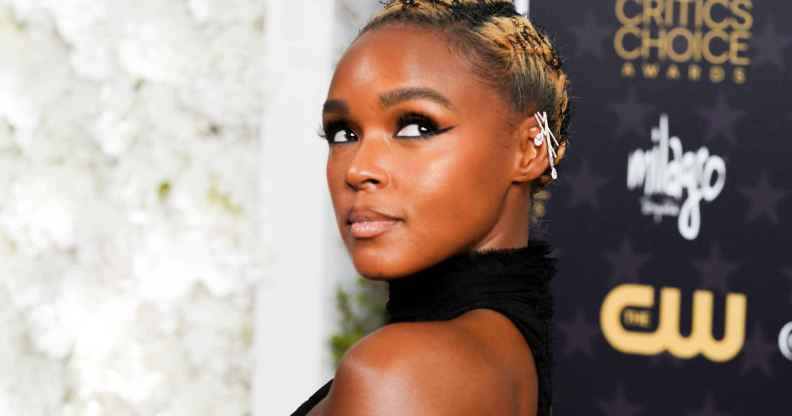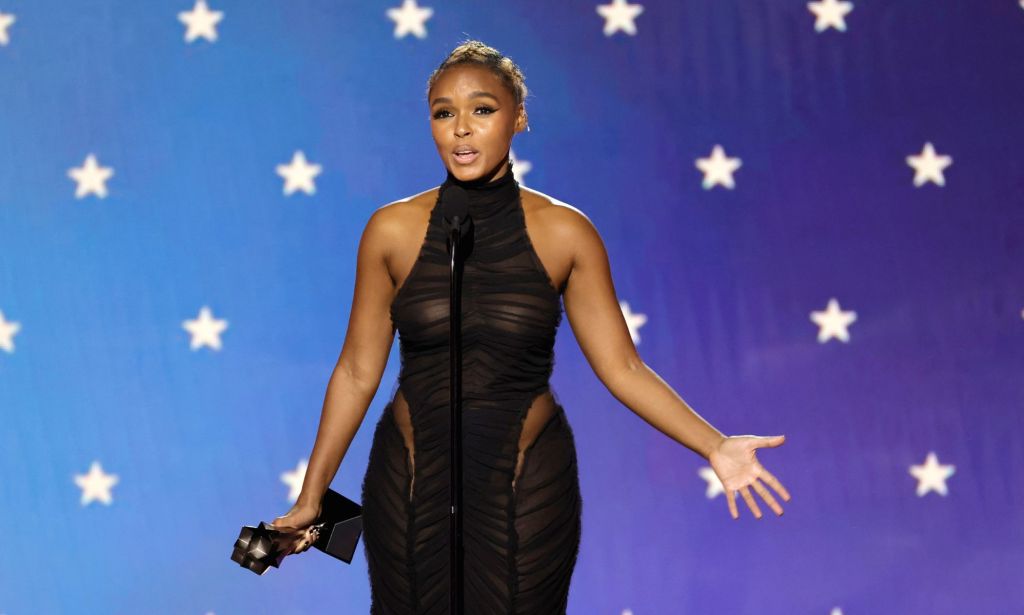Janelle Monáe wants you to listen to trans and non-binary people, and we really couldn’t agree more

Janelle Monáe is celebrating her queerness, and you should too (Getty)
Actor, singer, trailblazer and mother to the LGBTQ+ community Janelle Monáe is urging us all to open our minds when it comes to gender and sexuality.
The Glass Onion star came out as non-binary last year, telling the Red Table Talk show that she doesn’t see herself as “a woman, solely”, rather as “beyond the binary”. Monáe uses both she and they pronouns.
In a new interview with SiriusXM, radio host Jess Cagle talked about trans kids being used as a “political football” in the US, as bills across the country continue to criminalise trans people for living authentically.
Monáe then urged everyone to listen to how trans and non-binary people feel, and to “further investigate” who and what we all identify as.
“I think it’s all about just honouring your truth and your authenticity, and whatever that may look like,” she said.
“I’m not this arrogant person that thinks that I have all the answers, so I think for me, it’s about making sure I’m also saying to people, ‘Further investigate who you are’.
Continuing with grace and eloquence as always, Monáe continued: “Allow yourself to discover something new about yourself. Open up your mind to different possibilities, and listen to folks who are saying, ‘Hey, this is who I am. This is how I feel inside and outside.’
“I think all of it, to me, is important as we evolve as humanity, as we understand more about gender, as we understand more about sexuality. So, I’m just keeping an open mind about it all.”
Monáe continued the celebration of her queer identity at the 2023 Critics Choice Awards, as she accepted the SeeHer award for her role in defying gender stereotypes.

Opening her speech, the star said: “I’m Janelle Monáe and my pronouns are she/her, they/them, and free ass motherf****r.
“I try to make an effort in my work… to highlight the ones who have been pushed to the margins of society, who’ve been outcast or relegated to ‘the other,’.
“This is a deeply personal choice for me because I grew up to working-class parents: My mother was a janitor, my father was a trash man, and my grandmother was a sharecropper in Aberdeen, Mississippi,” she said.
“And it’s personal because I am non-binary, I am queer, and my identity influences my decisions and my work.”
How did this story make you feel?

